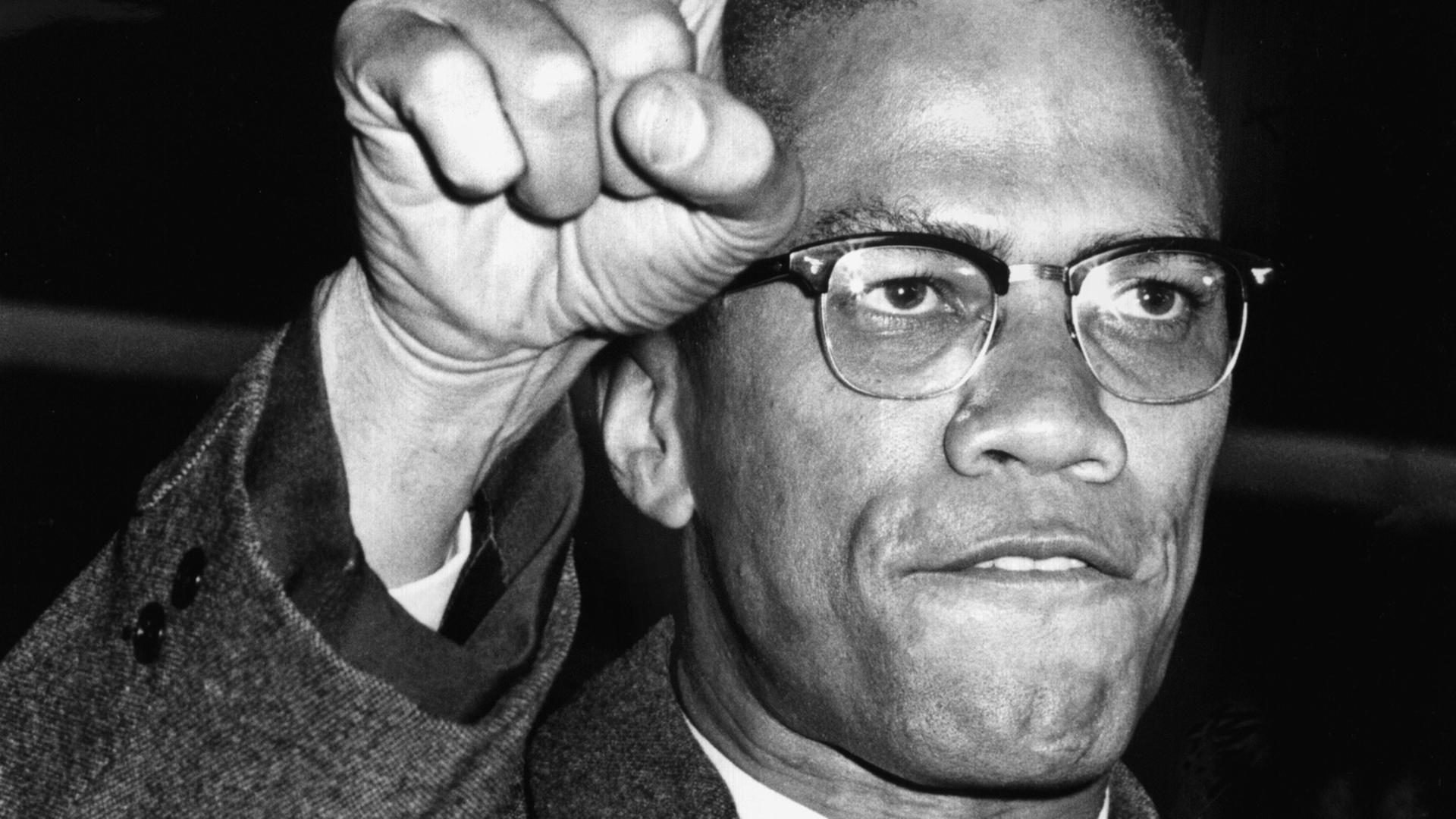(ThyBlackMan.com) Sixty years since the bullets flew inside the Audubon Ballroom, the echoes of Malcolm X’s voice refuse to fade. His words — razor-sharp, unflinching, and drenched in the righteous fire of a people’s fury — still pulse through the bloodstream of struggle. His death was an assassination, yes, but also an attempt to erase a man who had become too powerful, too articulate, too dangerous for the America that preferred its Black men bent or broken. Yet, even as his body fell, his legacy stood taller.
Ossie Davis called him a prince. Not a prince of fairy tales, not a prince who waited for coronation, but a Black prince forged in the heat of a nation’s betrayal, a prince of Harlem’s night, prison’s solitude, and Mecca’s revelation. A prince who saw his people lynched, jailed, choked, shot, forgotten, and still, he stood. A prince who knew that loving Blackness in America was a revolutionary act — and he loved us so much it got him killed.
Sixty years later, America still fumbles with his name, tries to soften his edges, and turns him into a postcard-sized version of himself, an icon without the teeth. Schools speak of him in hushed tones, if at all. They will teach Martin’s dream but hide Malcolm’s fire. Because to speak Malcolm X’s name is to speak truth: about empire, resistance, and what happens when a man refuses to bow.

Who Owns Malcolm’s Legacy?
The question of Malcolm X’s legacy is a battleground. The streets claim him, the scholars debate him, the politicians avoid him, and the government — well, the government has never stopped fearing him. Even in death, Malcolm remains a threat. He is the ancestor who whispers revolution in the ears of the restless.
Sixty years after his murder, Black America still walks the tightrope he warned us about — between assimilation and autonomy, between pleading for justice and demanding it, between the ballot and the bullet.
And what of the institutions that failed him? The FBI files read like a confession, a bureaucratic dirge of surveillance, sabotage, and complicity. The Bureau tracked his every move, plotted against him, infiltrated his ranks, and when he bled out on that ballroom stage, they acted surprised. And the nation, comfortable in its amnesia, lets them get away with it.
But history has a way of circling back. The truth is an ember that refuses to die. And Malcolm’s words, his ideas, his very existence, remain a mirror from which America cannot look away from.
The Price of Loving Blackness
Malcolm understood something America still refuses to admit: Blackness is not a crime, but loving it — openly, unapologetically, without asking permission — is.
He loved us with an unbreakable faith, loved us enough to tell us the truth, loved us enough to grow. The Nation of Islam shaped him, but when its walls became too small, he expanded. When the ideology no longer fit the weight of his spirit, he broke free. He walked across the desert, prayed in Mecca, and returned transformed — not less radical, but more. More dangerous, because now his revolution was global. Now, he saw that the struggle of Black people in America was tied to the struggles of the colonized everywhere.
They killed Malcolm because he refused to stay still. They killed him because he evolved. They killed him because he dared to love us not just as victims, but as a people capable of power, of self-determination, of greatness.
And here we are, sixty years later, still demanding the same things. Still marching for justice. Still burying our own. Still being told to wait.
What Would Malcolm Say Now?
What would Malcolm make of this America, 60 years after they stole him from us? Would he see progress or just a more sophisticated illusion of it? Would he see his people freer or simply more surveilled? Would he see justice or just new chains disguised as opportunity?
Would he recognize how politicians try to invoke his name, twist his words, and reduce his legacy to a quote stripped of its revolutionary teeth? Would he see how corporations slap his face on T-shirts while upholding the same system that destroyed him?
Or would he see the ones who still listen? The ones who still study his speeches like scripture. The ones who still refuse to bow. The ones who whisper his name in moments of courage, the ones who invoke his fire in the face of oppression. The ones who still believe in self-defense, in self-determination, in the right to fight for freedom by any means necessary.
Sixty Years Later, What Do We Owe Him?
We owe Malcolm more than memorials. We owe him more than documentaries. We owe him more than watered-down history lessons that turn his rage into something palatable for white comfort.
We owe him action. We owe him courage. We owe him a refusal to be pacified. We owe him the kind of Black love that terrifies oppressors — the kind that builds, that organizes, that defends itself. The kind that understands that waiting for permission to be free is a fool’s game.
Sixty years after they tried to silence him, Malcolm X still speaks. His voice echoes in every act of rebellion, in every demand for justice, in every refusal to accept less than what we are owed.
And if we are listening — really listening — then we must answer.
Written by Dr. Mustafa Ali
Official website; https://www.mustafasantiagoali.com/

















Leave a Reply